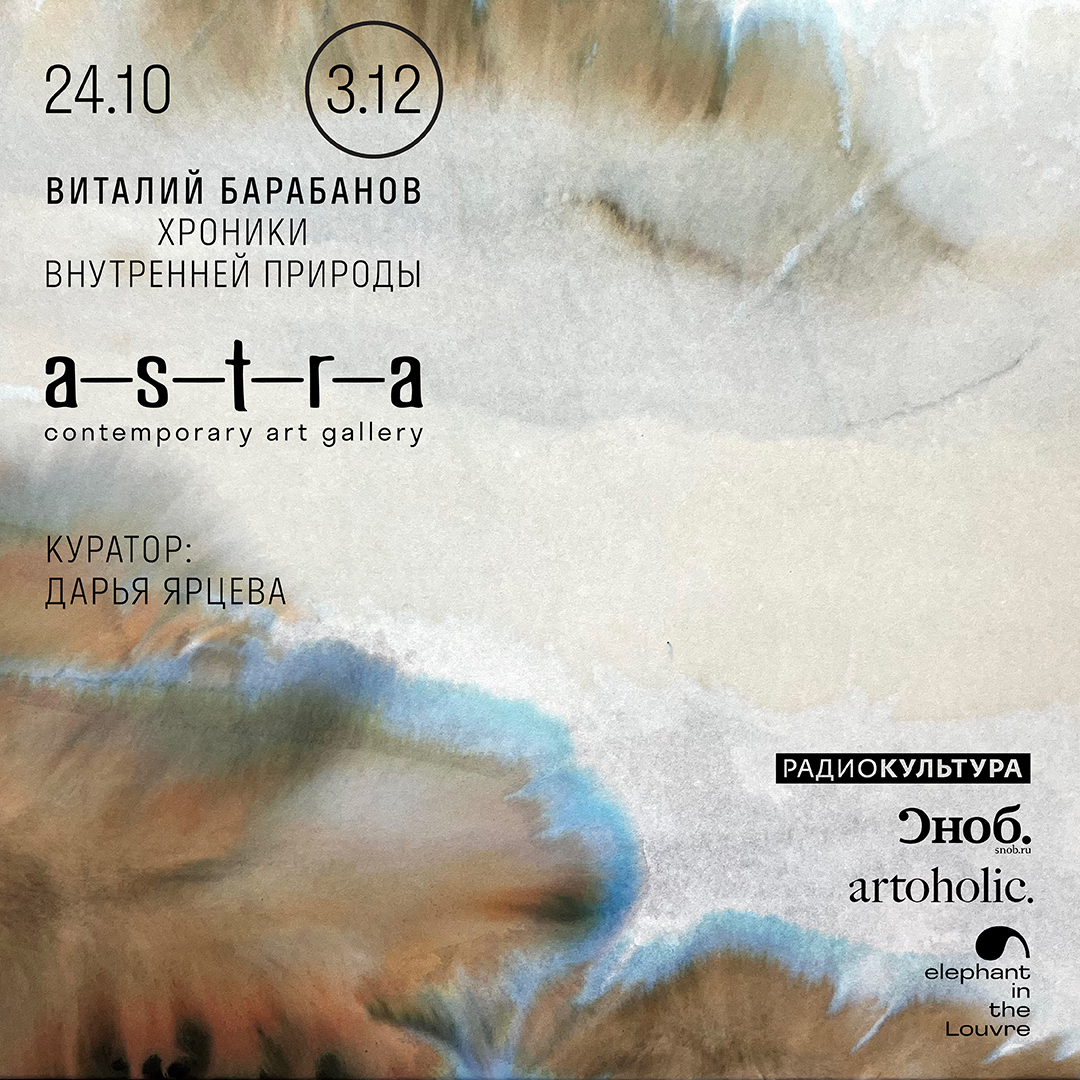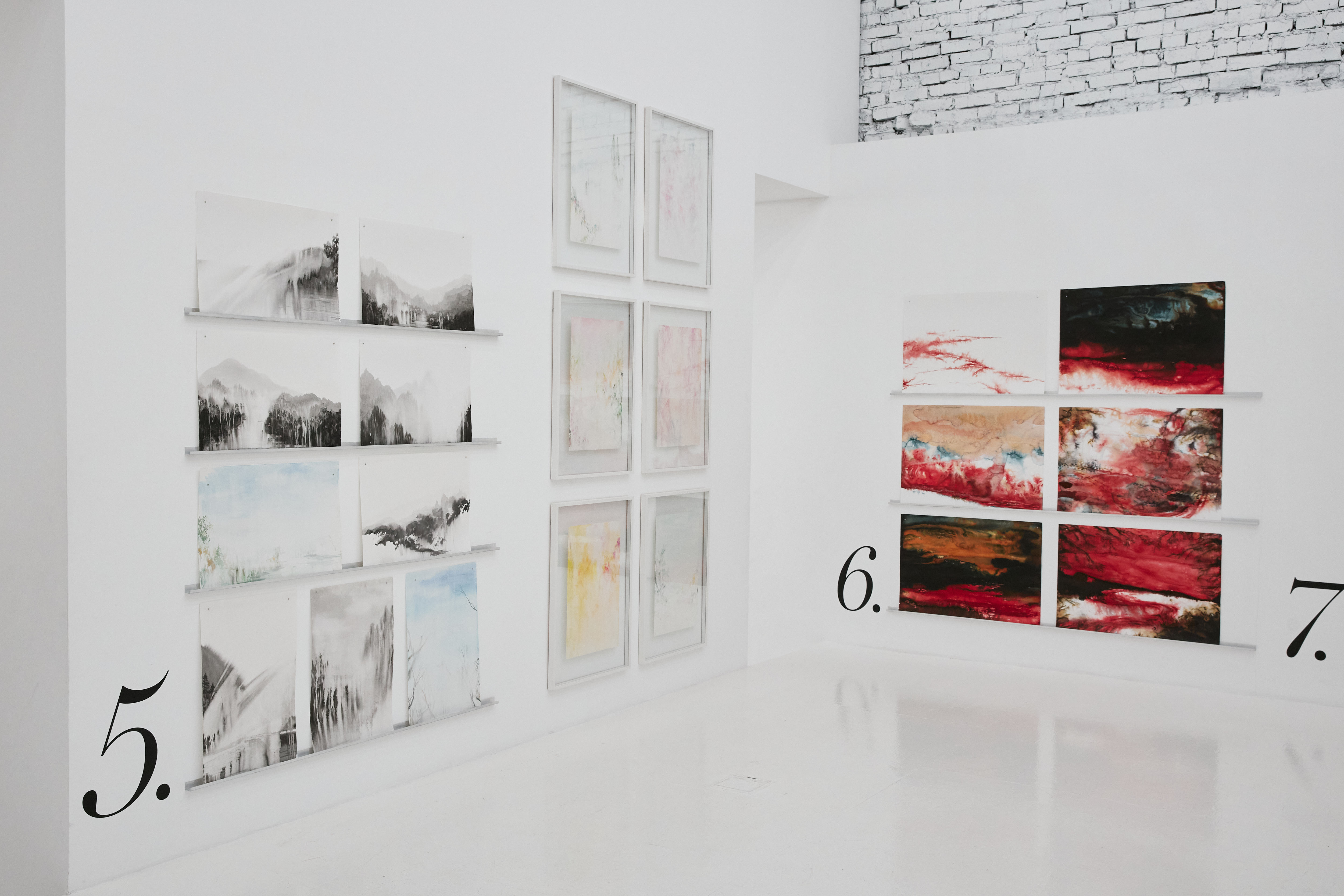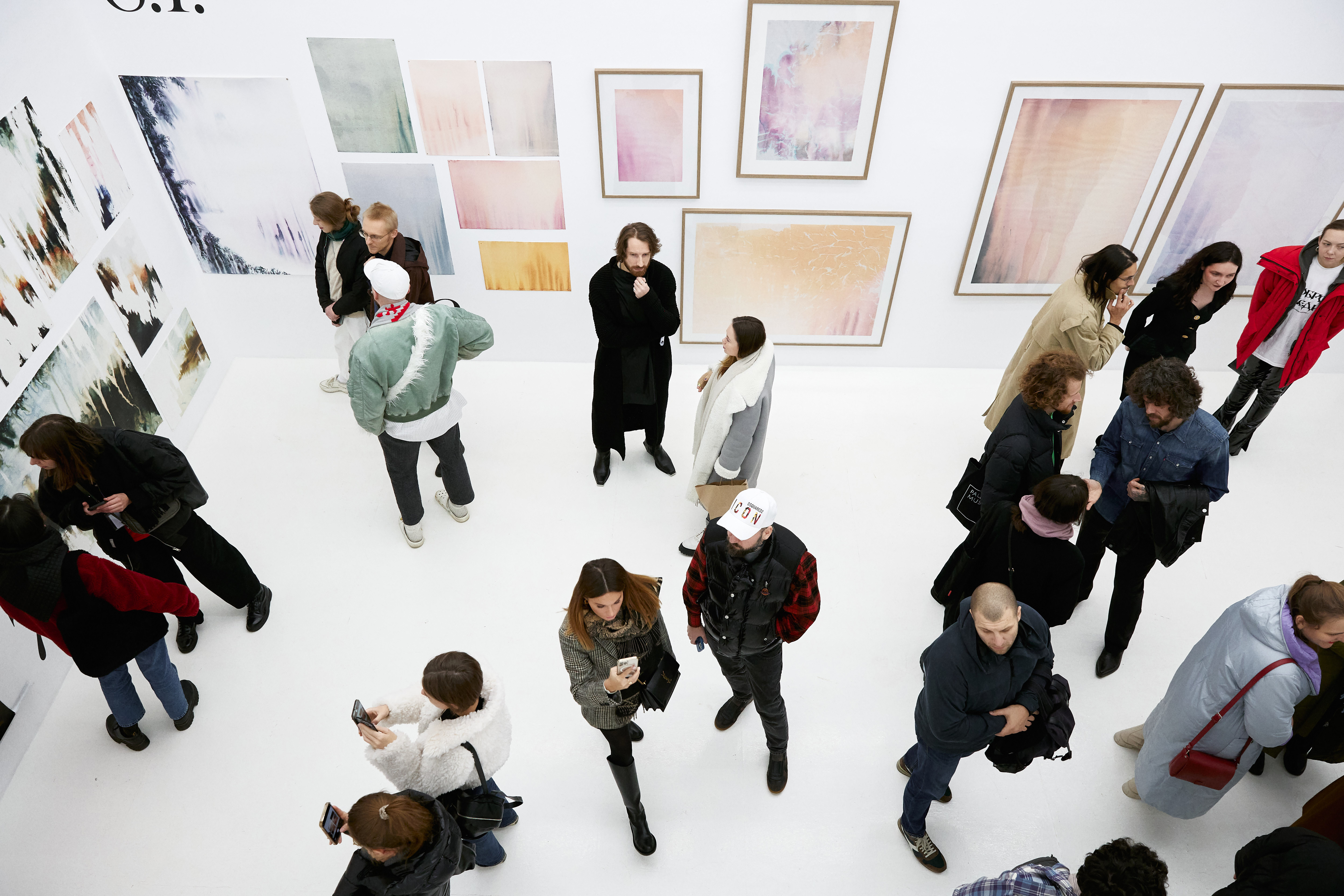The Chronicles of Inner Nature
Vitaly Barabanov's solo show
curated by Daria Yartseva
Winzavod Central Exhibition Centre
4th Syromyatnichesky Lane, 1/8, p. 9
24.10 — 26.11.2023

"An event turns into a memory of it lightning fast, and therefore it is almost impossible to grasp reality: it immediately begins to take on fantasy, mirages, desire - that which is inextricably linked to the personality. Art is also only a trace of the here-and-now, so the present is only available to us in the moment. Nevertheless, the artist is always concerned with the desire to capture and convey the flow of life, and this is where his creative path is born: in the search for the forms that most accurately reflect the impression. It is not for nothing that the etymological word "artist" in ancient times meant "one who brings to life".
"The Chronicles of Inner Nature" is the result of a four-year journey in which experimentation with form goes hand in hand with the artist's inner experiences. The project is several series in which one can trace the evolution of the formal approach itself: from the deconstructivist graphite and pencil sheets from 2019's Perfect decay, through the almost completely washed out watercolour landscapes of 2021, to the dramatic abstract sheets of 2022. It was along the way that the artist discovered the concept of "inner nature". In the new series of almost monochromes, the original landscape is also transformed or washed away, the real turns into the abstract, the problem of "figure-background" finally disappears, as if the binary oppositions themselves are erased. Human memory is as somnambulistic and hazy as the vague outlines of colourful stains, and the washing away of layers shows its literal erasure under the influence of time and events.
Vitaly Barabanov's abstraction thus also becomes a documentation of history itself, in which we can hear the whisper of rewritten canvases and lost frescoes. It is curious how art history speaks to us through this disintegration of representationalism. Even in the personal transition from academism to modern painting, the artist lives through himself and his experience in the common. At the same time, this living is purely individual. It reflects the events of recent history and personal experiences, which begin to manifest themselves in the material artefacts themselves: the palette acquires screaming colours, the paper tears under the influence of alcoholic ink, and there is hope in the golden glow. Tension, drama, love reveal themselves through matter, the same nature. And this manifestation must be as honest and sublimated as possible - that is why each work is created in one day. This is how the psychological exists, "breathes" in the original sense of the psychic (ψυχή). War and love, mountains and forests - whether they were or seem to be - it doesn't matter, they are forever part of your own nature, which you nurture in conditions where everything affects each other, where everything is one.
Nature is natural and organic, so it is important for the artist to create homemade paints, use natural materials, mimic nature, reproducing it. The Russian avant-garde organicists led by Mikhail Matyushin and Elena Guro worked in the same sensitive and thoughtful way: nature for them was the basis of all experience, its poetics nourished their art. This is why the avant-garde is so closely linked to formalism - the acquisition of one's own style and technique is inconceivable without endless search and daily study. To create his works, Barabanov uses only three basic colours, mixes all the others, allows the colours to flow freely and interpenetrate each other, confirming that even technology (remember the colours of RGB monitors, fractals of digital circuits) is rooted in nature and learns from it.
By creating multi-layered works of rice paper, mixing colours, washing away initially realistic landscapes and reducing them to abstraction, the artist achieves the effect of foggy layering of memories of places he may never have been. In this way, the central landscape becomes the inner world itself, which grows, expands, and also nurtures the hope that after the washing away of the old, the light of a new beginning will shine through. The drama of history, fixed in its disintegration, is always turned round by a whirlwind of the sudden, the surprising and the living. All that remains is to think about how to bring them closer."
– Anastasia Khaustova



